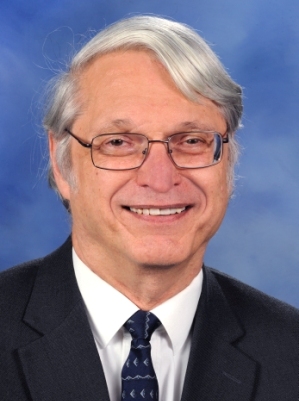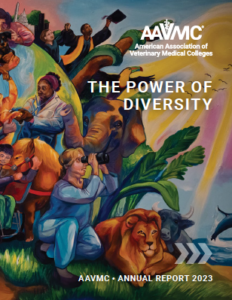
Washington, D.C., January 3, 2020 – The American Association of Veterinary Medical Colleges (AAVMC) has named Dr. Jerome Masty, an associate professor in the Department of Veterinary Biosciences at the Ohio State University College of Veterinary Medicine, as the recipient of the 2019 AAVMC Distinguished Veterinary Teacher Award, presented by Zoetis.
“Every day, educators and researchers at our member institutions make outstanding contributions to academic veterinary medicine that inspire others, contribute to medical breakthroughs and work to educate upcoming generations of veterinarians,” said AAVMC Chief Executive Officer Dr. Andrew T. Maccabe. “We are pleased to honor these extraordinary individuals through our awards program and look forward to recognizing their achievements during our 2020 annual conference.”
The award, which is considered one of the most prestigious teaching awards in international academic veterinary medicine, recognizes excellence in professional veterinary medical education and is presented to an educator whose sustained record of teaching excellence and ability, dedication, character and leadership has contributed significantly to the advancement of the profession.
“Zoetis is proud to sponsor the prestigious AAVMC Distinguished Veterinary Teacher Award,” said Zoetis U.S. Chief Medical Officer and Vice President Veterinary Medical Services and Outcomes Research Dr. Christine C. Jenkins. “Recipients like Dr. Masty represent the very best of veterinary medical education, and we are honored to celebrate his achievement and dedication to excellence in preparing future generations of veterinary professionals. We appreciate the partnership with AAVMC to recognize outstanding educators who impact the future of our profession.”
Dr. Masty is the recipient of numerous teaching awards at Ohio State, where he primarily teaches first-year gross anatomy, second-year neuroanatomy of the nervous system and three second-year elective classes in surgical anatomy, feline anatomy and neuroanatomy.
His research interests include the development of programmed self-instruction in veterinary anatomy and the role of brain-gut peptides in autonomic innervation of the gastrointestinal tract.
He describes his teaching approach as one that goes beyond passive listening to engage students through interactive notes and illustrative diagrams that help students to visualize and remember how different parts of the body work together. He also continuously solicits and responds to student feedback.
A former student wrote that, “Dr. Masty makes it a point to address any issues or concerns that are brought to his attention with the entire class. By doing this, he has gained the trust that our voices are being heard, even when he disagrees with some of our suggestions. This dialogue fosters an environment where students feel respected and encourages us to be fully engaged in our learning process.”
Another student wrote that Dr. Masty adapts to different learning styles and artfully balances the need to push students without discouraging them or causing them to doubt their abilities.
He has been a mentor to numerous other instructors throughout various disciplines and is “one of the most popular and innovative instructors at Ohio State,” wrote Assistant Vice Provost Alan Kalish, who has worked with Dr. Masty on numerous teaching enhancement projects for nearly two decades. Dr. Masty coordinated and mentored senior instructors’ teaching enhancement projects to support their renewal as teachers. He also regularly served as a faculty mentor for new graduate teaching associates in the laboratory sciences and was selected as an inaugural mentor for Ohio State’s new faculty mentorship program.
He earned a MS and PhD in veterinary anatomy and a Doctor of Veterinary Medicine (DVM), all from Purdue University.
His award will be presented during the AAVMC’s 2020 Annual Conference and Iverson Bell Symposium, March 6-8, 2020 at the Hyatt Regency Washington on Capitol Hill in Washington, D.C.
The AAVMC is a nonprofit membership organization working to protect and improve the health and welfare of animals, people and the environment around the world by advancing academic veterinary medicine. Members include 53 accredited veterinary medical colleges in the United States, Canada, the Caribbean Basin, Europe, Australia, New Zealand and Mexico.
– 30 –
Download a photo of Dr. Masty here.





SHARE